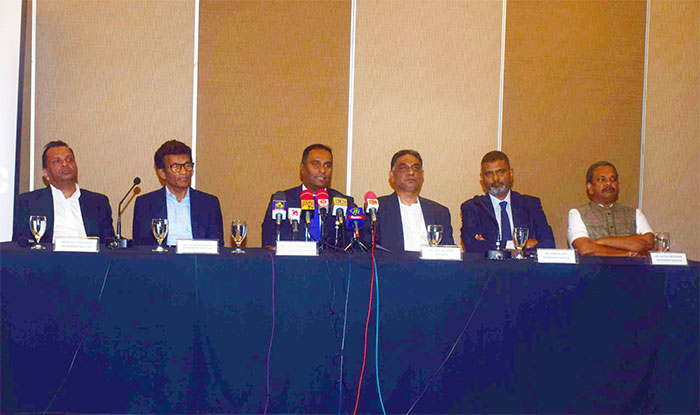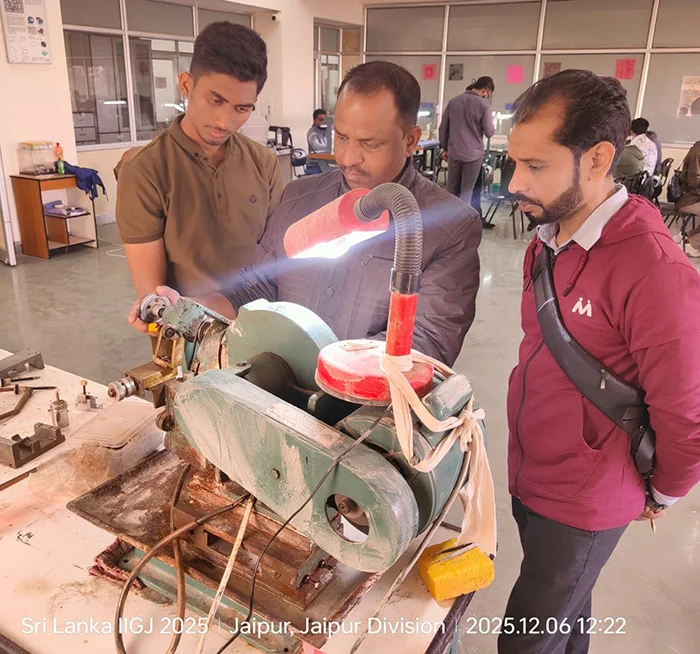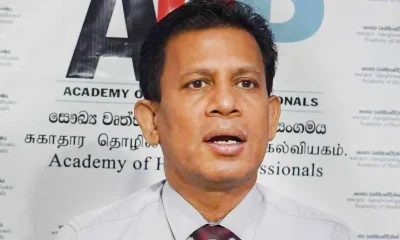Business
SMB Finance CEO predicts lending rates will fall in 2023

by Sanath Nanayakkare
Making an interesting bet on the cost of borrowing money by entrepreneurs and businesses, Supul Wijesinghe, CEO of SMB Finance predicted a fall in interest rates in 2023 or in the foreseeable future.
“Interest rates should come down next year or in the foreseeable future as a result of the measures being taken by the Central Bank of Sri Lanka (CBSL) and other stakeholders,” he said addressing the media in Colombo recently.
He made this remark responding to a query from the media as to how his non-banking financial institution – which was recently elevated to SMB Finance from SMB Leasing – would deal with having to lend potential customers at an interest rate of over 30%.
In response he said, “When you have a 30% government borrowing rate – which is bench marked as a risk-free rate by the market, obviously lending rates would be higher than that. In such a context, entrepreneurs will surely contemplate whether they can borrow funds and operate a business with an interest rate of over 30%. This is an issue, and at present, lending is curtailed in both banking and non-banking financial institutions sector due to this reason. But I think this trend will see a favourable change in 2023 or in the foreseeable future.”
SMB Finance currently has 3 branches and they are planning to expand it to 10 branches for which approval has been sought from the CBSL.
“We should have nothing but optimism as we enter the Year 2023. We are looking to set up new branches in four provinces and how and when branches can be set up in the North and the East will be determined subsequently. It could possibly happen in 2024. We have to be mindful of our overhead costs when setting up branches because we have to deliver value to our shareholders,” he said.
When asked about SMB Finance’s growth plans for 2023, he said, “We are planning to launch several new products targeting the small and medium enterprise (SME) sector which has been adversely affected as a consequence of the country’s economic crisis. In Sri Lanka, we mainly pursue asset-based lending. SMB Finance will be looking at entrepreneurs and businesses that don’t have the required collateral, but are running a fairy good business in terms of their cash flow. For instance, I would like to tell you about one of the products we are currently offering the tea industry. There, we enter a tripartite agreement with the tea broker, tea estate/factory and SMB Finance. Through this arrangement, the payment assurances are given by the tea broker affiliated with the tea estate. This way we mitigate the default risk and also support the borrower in a sustainable way. Similarly, we will be looking at various industries producing ecological products and have a steady cash flow. We will be announcing our new product portfolio in the first quarter of 2023.”
SMB Finance PLC Chairman, Ravi Wijeratne, stated that the award of the business license to SMB reflects the Company’s strong balance sheet having a core capital well in excess of minimum requirements stipulated by the CBSL.
SMB Leasing (formerly) increased its Assert Base by over 300% from Rs. 1.5 billion to 5 billion and Shareholder Funds by 200% from Rs. 1.5 billion Rs. 3 billion over the past last three years.
For budgetary purposes, raising of domestic currency debt by the Government of Sri Lanka is mainly made through, Treasury bills and Treasury bonds. At the Treasury bill issuance held on 21 December 2022, Rs. 5,510 million was raised at the Weighted Average Yield Rates of 32.23% and 29.30%. Interest rate movements in the Treasury bill market provide a benchmark for the short-term credit market. Hence, changes in the volumes and rates in the Treasury bill market affect the cost, profitability and liquidity of financial institutions.
Central Bank’s Weekly Economic Indicators showed that Weekly Average Weighted Prime Lending Rate (AWPR) for the week ending 23rd December 2022 increased by 37 bps to 28.68 per cent compared to the previous week.
Business
Real economic data isn’t in a report: It’s on a bargain table

If you want to understand Sri Lanka’s economy, don’t start with reports from the Ministry of Finance or the Central Bank. Go instead to a crowded clothing sale on the outskirts of Colombo.
In places like Nugegoda, Nawala, and Maharagama, temporary year-end sales have sprung up everywhere. They draw large crowds – not just bargain hunters, but families carefully planning every rupee. People arrive with SMS alerts on their phones and fixed budgets in their minds. This is not casual shopping. It is a public display of resilience, a tableau of how people are coping.
Tables are set up in parking lots and open halls, clothes spilling from cardboard boxes. When new stock arrives, hands reach in immediately – young and old, men and women – searching for the right size, the least faded colour, the smallest flaw that justifies the price. Everyone is heard negotiating, not with desperation, but with a quiet, shared dignity.
“Look at the prices in the malls, then look here,” says a middle-aged mother shopping for school uniforms in Maharagama. “This isn’t shopping for enjoyment. This is about managing life.” Food prices have already stretched her household budget thin. Here, she can buy trousers for half the usual price.
Women, often the household’s purchasing managers, move with determined efficiency. Men are just as involved – checking stiches, comparing prices, trying shirts over their own clothes. Inflation, here, wears the same face on everyone.
Bright banners promise “Trendy Styles!”, but most shoppers know better. These are last season’s clothes, cleared out to make room for next year’s stock. Still, no one feels embarrassment. “New” now simply means something you didn’t own before; the label matters far less than the price.
Not all items are discounted equally. Essentials – work trousers, denims, track pants – are only slightly cheaper. Sellers know these will sell regardless. The steepest discounts are reserved for the items people can almost afford to skip.
This is economic data you won’t find in official reports. Here, inflation is measured in real time. A young man studies a shirt’s price tag and calculates how many days of work it represents. Friends debate whether a slight fade is a fair trade for the price. Every transaction is a careful calculation.
Year-end sales have always existed. But since the economic crisis, they have taken on a new, grim significance. They offer a slight reprieve to households learning to steadily lower their aspirations. While the government speaks of fiscal discipline and a steady Treasury, everyday life remains a tightrope walk.
The Central Bank measures inflation in percentages. On the streets of Kiribathgoda, it is measured in trade-offs: one item instead of two; buying now or waiting for the Avurudu season; choosing need over want, again and again.
As evening falls, the crowds thin. The tables are left rumpled, hangers scattered like fallen leaves. Yet these spaces tell a story more powerful than any quarterly report – a story of business ingenuity, household struggle, and an economy where every single purchase is weighed with immense care.
In that careful weighing lies a quiet, unsettling truth. No matter what is said about replenished reserves or balanced budgets, these bargain tables – if they could speak – would tell the nation’s most heart-rending story. And they do, to anyone who chooses to listen.
By Sanath Nanayakkare
Business
Global economy poised for growth in 2026, says Goldman Sachs, despite uneven job recovery

The global economy is forecast to expand by a “sturdy” 2.8% in 2026, exceeding consensus expectations, according to the latest Macro Outlook report from Goldman Sachs Research. This optimistic projection highlights a resilient recovery trajectory across major economies, albeit with significant regional variations and a persistent disconnect with labour market strength.
Goldman Sachs economists are most bullish on the United States, expecting GDP growth to accelerate to 2.6%, substantially above consensus estimates. This optimism stems from anticipated tax cuts, easier financial conditions, and a reduced economic drag from tariffs. The report notes that consumers will receive approximately an extra $100 billion in tax refunds in the first half of next year, providing a front-loaded stimulus. A rebound from the past government shutdown is also expected to contribute to what chief economist Jan Hatzius predicts will be “especially strong GDP growth in the first half” of 2026.
China’s economy is projected to grow by 4.8%, underpinned by robust manufacturing and export performance. However, economists caution that parts of the domestic economy continue to show weakness. In the euro area, growth is forecast at a modest 1.3%, supported by fiscal stimulus in Germany and strong growth in Spain, despite the region’s longer-term structural challenges.
A key concern outlined in the report is the stagnant global labour market. Job growth across all major developed economies has fallen well below pre-pandemic 2019 rates. Hatzius links this weakness partly to a sharp downturn in immigration, which has slowed labour force growth, with the disconnect being most pronounced in the United States.
While artificial intelligence (AI) dominates technological discourse, Goldman Sachs economists believe its broad productivity benefits across the wider economy are still several years away, with impacts so far largely confined to the tech sector.
Business
India trains Sri Lankan gem and jewellery artisans in landmark capacity-building programme

A 20-member delegation of professionals from Sri Lanka’s Gem and Jewellery sector visited India from 1–20 December 2025 to participate in a specialised Training and Capacity Building Programme. The delegation represented the gemstone cutting and polishing segments of Sri Lanka’s Gem and Jewellery industry.
The programme was organised pursuant to the announcement made by Prime Minister of India, Narendra Modi, during his visit to Sri Lanka in April 2025, under which India committed to offering 700 customised training slots annually for Sri Lankan professionals as part of ongoing bilateral capacity-building cooperation.
The 20-day training programme was conducted by the Government of India at the Indian Institute of Gem & Jewellery, Jaipur, Rajasthan. The curriculum comprised a comprehensive set of technical and thematic sessions covering the entire Gem and Jewellery value chain. Key modules included cleaving and sawing, pre-forming, shaping, cutting and faceting, polishing, quality assessment, and industry interactions, aimed at strengthening practical skills and enhancing design and production capabilities.
As part of the experiential learning component, the participants undertook site visits to leading gemstone manufacturing units, gaining first-hand exposure to contemporary production technologies, design development processes, and modern retail practices within India’s Gem and Jewellery ecosystem.
The specialised training programme contributed meaningfully to strengthening professional competencies, promoting knowledge exchange, and deepening institutional and industry linkages in the Gem and Jewellery sector between India and Sri Lanka, reflecting the continued commitment of both countries to capacity building and people-centric economic cooperation.
-

 News6 days ago
News6 days agoMembers of Lankan Community in Washington D.C. donates to ‘Rebuilding Sri Lanka’ Flood Relief Fund
-

 News4 days ago
News4 days agoBritish MP calls on Foreign Secretary to expand sanction package against ‘Sri Lankan war criminals’
-

 Features6 days ago
Features6 days agoGeneral education reforms: What about language and ethnicity?
-

 News6 days ago
News6 days agoSuspension of Indian drug part of cover-up by NMRA: Academy of Health Professionals
-

 Sports4 days ago
Sports4 days agoChief selector’s remarks disappointing says Mickey Arthur
-

 News3 days ago
News3 days agoStreet vendors banned from Kandy City
-

 News6 days ago
News6 days agoUS Ambassador to Sri Lanka among 29 career diplomats recalled
-

 Editorial6 days ago
Editorial6 days agoA very sad day for the rule of law















